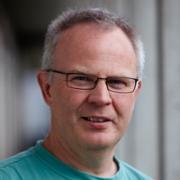Realizing the plant protein future: gentle seed deconstruction (Seedstruction)
Substitution of animal with plant-based proteins in foods is desired for sustainability and health. Legume seeds, with up to 40% protein, offers a sustainable alternative protein source. Currently, seed proteins are extracted by physicochemical methods having environmental impact comparable to that of animal protein production. Seedstruction aims to demonstrate the potential to extract seed storage proteins using a novel, enzymatic approach inspired by seed germination.
With an increasing protein demand, expected to double by 2050, and the significant environmental impact of livestock, e.g., responsible for 15% of the anthropogenic greenhouse gas emissions, a shift to plant based proteins is required towards a sustainable future. Legumes, containing up to 40% protein, make an excellent candidate. However, obtaining the seed proteins is challenging due to the complexity of the plant seeds and the dense packing of proteins within the seed cells.
Current methods to utilise seed proteins typically involve physicochemical treatments based on fractionation of the cells, requiring significant resources, e.g. water and energy, resulting in environmental impact that can be comparable to that of animal proteins production. Seedstruction will develop the underpinning knowledge required to identify novel bioinspired enzymatic technologies that combined with gentle flow/mixing will enable release of highly functional proteins from whole seeds with minimal requirement for purification and without the need to fractionate the cells, resulting in sustainable processes with reduced water and energy use.
Currently, there is a knowledge gap on the necessary enzymes and mechanisms required for enzymatic seed protein extraction, as they highly depend on the seed properties and germination conditions. To facilitate protein harvest from whole pea seeds, the role of water content, combined with flow/mixing, on enzymatic reactions and accessibility of the enzymes to the centre of the pea seed will be studied.
Seedstruction’s approach will contribute to the green transition from animal to plant-based foods by providing the necessary scientific knowledge for scalable enzymatic seed protein utilisation that will further be applicable to a range of crops of interest to Denmark and the EU.
The objective of Seedstruction is to explore the potential to release and extract seed proteins in a mild, controlled, sustainable way by using enzymatic methods inspired by the plant’s own mechanism to mobilise the storage proteins during germination.
Research questions:
- Can we translate the plant’s mechanism for release of seed storage proteins into new sustainable biotechnological methods to obtain food proteins in a mild, controlled way?
- What is the effect of flow/mixing on enzymatic reactions at a range of water contents?
Find out more about the project Seedstruction in this article from November 2021.
Researchers
| Name | Title | Phone | |
|---|---|---|---|
| Search in Name | Search in Title | Search in Phone | |
| Mads Emil Larsen | PhD Fellow | +4535335542 | |
| Ourania Gouseti | Associate Professor | +4535324048 | |
| Poul Erik Jensen | Professor | +4535333340 |
Funded by:
Seedstruction has received a four year funding from the Independent Research Fund Denmark.


